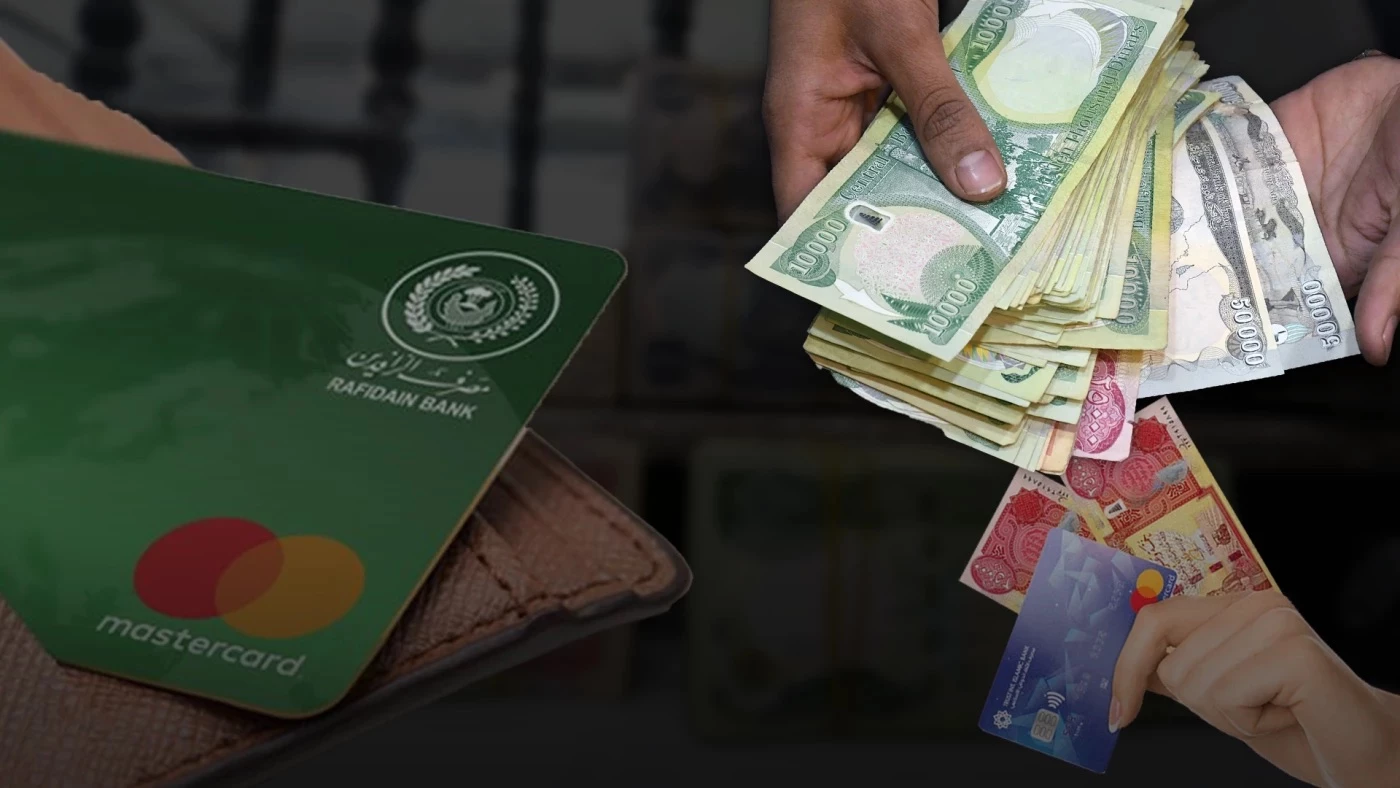DUBAI, UAE - The Central Bank of Iraq has directed local banks to suspend the use of MasterCard for international transactions beginning June 1, 2025, according to a bank source.
“All foreign financial transactions will be conducted exclusively through the Switch card,” the source told The New Region on Monday. The Central Bank's decision aims to enable better oversight and tracking of financial activities conducted abroad.
The source, who spoke on condition of anonymity, said the American-issued Switch card will provide the Central Bank with greater ability to monitor usage and financial flows.
Mustafa Akram Hantoush, a banking affairs expert, said the directive will apply to both domestic and international use of MasterCard issued by local banks, starting in June.
“Only foreign banks operating in Iraq and the Qi Card company will be allowed to continue using MasterCard services,” Hantoush told The New Region. “Local banks that wish to maintain international MasterCard operations must either partner with foreign banks inside Iraq or sign agreements with international banks abroad.”
In a statement issued on Monday, Rafidain Bank denied reports circulating about the suspension of its payment cards, however the statement did not address any plans to do so in June.
“We confirm that MasterCard and Visa cards issued by the bank are functioning normally both inside and outside Iraq, and no decision has been issued by MasterCard or relevant authorities to suspend them,” the bank’s media office said.
In February 2025, the US escalated pressure on Iraq’s banking sector, targeting institutions suspected of facilitating dollar transfers to Iran. Following a visit from a top US Treasury official, Iraq’s Central Bank barred eight additional banks, among them South Islamic Bank, Kurdistan Islamic Bank, Al Ittihad, and Ashur International Bank, from opening dollar accounts or conducting international dollar transfers, raising the total to 35 banks.
The US move, aimed at curbing currency smuggling to Tehran and limiting financing for Iran-backed proxies, forced the sanctioned banks to operate solely within Iraq. Services like international credit card use were immediately restricted.
Banking experts warned the sanctions could severely harm Iraq’s economy by raising the dinar-dollar exchange rate and deterring foreign investment.
Central Bank Governor Ali al-Alaq defended the restrictions as compliance-driven rather than punitive, saying banks could resume dollar dealings once they meet anti-money laundering and terrorism financing standards.
The crackdown extended beyond banking, with US sanctions also hitting sectors like aviation, accusing Fly Baghdad of aiding the IRGC’s weapons transfers. Iraq’s parliamentary finance committee criticized the moves, urging the Central Bank to act to reduce reliance on the dollar and stabilize exchange rates.



 Facebook
Facebook
 LinkedIn
LinkedIn
 Telegram
Telegram
 X
X


